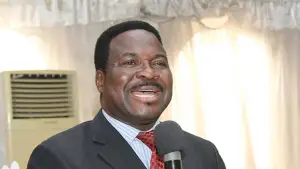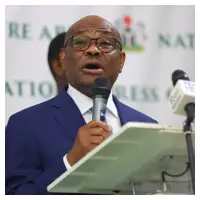Dr. Hakeem Baba-Ahmed, former aide to Vice President Kashim Shettima, has launched a scathing critique of Nigeria's political class, describing ongoing political realignments and coalitions as driven purely by selfish ambition rather than genuine national interest.
In a strongly-worded Facebook post that has sparked widespread discussion, Baba-Ahmed expressed deep frustration with what he termed "pointless jumping around by politicians" who are merely acting in their self-interest while neglecting the pressing needs of ordinary Nigerians.
"After they finish gathering in one corner or trying to patch together remnants from what they've destroyed, they'll realise they're all the same," Baba-Ahmed stated, suggesting that these political maneuvers offer no substantive hope for meaningful change in governance.
The political commentator particularly highlighted the plight of citizens in Northern Nigeria, emphasizing that what people desperately need is not political theatrics but practical solutions to fundamental challenges.
"The ordinary Nigerian is tired. Right now, what he needs is not to follow a politician, but to have security and food," he wrote, pointing to the growing disconnect between political activities and citizens' basic needs.
Looking ahead to the 2027 general elections, Baba-Ahmed issued a stark warning to the political establishment about underestimating the power of discontented citizens, particularly the poor who have been neglected.
"No matter your money, food, or influence, it's not you who will vote. The poor person you've turned your back on will vote. And he is fed up," he cautioned, suggesting a potential political reckoning on the horizon.
In his concluding remarks, Baba-Ahmed called for genuine reform while warning that "the Northern poor, whom they've long underestimated, may take the lead in reclaiming their freedom" if meaningful and effective change is not pursued.
His comments come amid increasing political activities and realignments as various political actors begin positioning themselves for the next electoral cycle, raising questions about whether these movements will address the fundamental challenges facing ordinary Nigerians.













